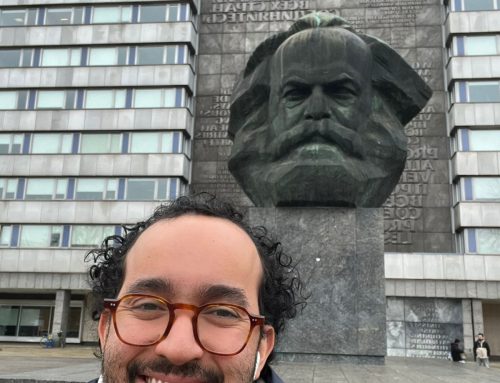Beyond ‘External Influence’: Rethinking Geopolitical Competition in the Western Balkans
This call for papers invites contributions to a panel discussion at the upcoming CEEISA-ISA Joint International Conference in Rijeka (June 2024) that address the impact of external actors in the Balkans in the context of an intensifying global geopolitical competition. The goal of the panel is to transcend the prevailing discourse centered on the notion of malign foreign influence, and instead foster a nuanced, theoretically-grounded conceptualisation of the different facets of evolving geopolitical entanglements in the Western Balkans, against the backdrop of broader global uncertainties. The panel aims to address a critical knowledge gap by encouraging scholars to reevaluate the conventional understanding of the Western Balkans’ geopolitical dynamics. This entails rethinking the context in which interactions with different actors take place, both in terms of the embeddedness (or lack thereof) in global trends, and in terms of understanding the intricate and variegated dynamics of the interactions between Western Balkan countries and external actors. Key questions and dimensions of the analysis include:
Global trends vs. Regional developments
- To what extent are the geopolitical dynamics in the region a mirror of global developments, and to what extent do they diverge from broader global patterns?
- In what ways do global geopolitical trends shape regional dynamics in the Balkans?
- How do the regional geopolitical dynamics in the Balkans contribute to the transformation of the global geopolitical landscape?
Local vs External Agency:
- How to define and understand the agencies of local actors in the region?
- In what ways do these local agencies contribute to shaping the geopolitical landscape in the Western Balkans? Are they amplifying, mediating, or resisting agencies of powerful external actors?
- How do the local and the external agencies interact and combine, and with which (intended and unintended) consequences?
Disruption vs. Status Quo:
- To what extent do foreign powers contribute to the emergence of new tendencies in the Western Balkans, and how can we discern these contributions?
- In what manner do foreign powers disrupt or reinforce existing structures and trends on the ground in the Western Balkans?
- How do different local Balkan disruptive and/or status quo actors position themselves in a context of a changing geopolitical dynamics?
Intentions vs Outcomes:
- How do stated (and unstated) intentions of external actors align with the actual outcomes of their actions? How to explain intentions-outcomes discrepancies?
- How do long-term impacts compare to short-term objectives? How are long-term visions impacted by short-term dynamics?
- How to conceptualise unintended consequences? Do they overshadow intended outcomes, or are they less significant?
Drivers of Research Agenda:
- How can we critically scrutinize and assess the influence of policy-makers and think tanks on the research agenda related to the Western Balkans?
- How can we differentiate between evidence-based research and policy-driven research in the study of geopolitical competition in the region – and does it matter?
- How can we avoid reinforcing stereotypes of the Balkans as a “venue” and instead grasp the contextual richness and the socio-political dynamics of the region?
We invite contributions that address these and further questions, looking at the different expressions of power that accompany the emergent geopolitical landscape in the region (e.g. normative, structural or symbolic); the role of mobilising narratives; the role of networks, linkages and gate-keeping elites; the interplay between economic and political considerations (addressing concepts such as transnational kleptocracy, economic statecraft, geoeconomics, and corrosive capital), as well as the context-shaping and conduct-shaping roles of foreign actors, particularly in areas such as governance, environmental policies, and foreign policy priorities. Intra-regional contributions and those discussing the Balkans in comparison to other global regions are both welcome.
We equally solicit submissions on the ‘usual suspects’ (non-Western actors such as Russia, China, Turkey and others) as well as on the less discussed influencers in the region (such as the US, the EU and individual EU member states). Submissions employing a critical and analytical lens are welcome. While focusing on geopolitical competition, we encourage approaches that also look at cross-cutting global trends, including climate change, technological disruption, health security, changing energy landscapes, and demographic changes among others. We also encourage submissions that focus on local resilience and adaptation, and the impact of transnational actors (state and non-state, institutional and non-institutional, legitimate and illegitimate). We look forward to receiving innovative contributions that will significantly contribute to a more profound understanding of the Western Balkans’ geopolitical landscape.
To apply, please send a title and an abstract (up to 250 words) to tena.prelec@cas.uniri.hr and anastas.vangeli@ef.uni-lj.si by 10 December 2023. Selected papers will be considered for inclusion in an already agreed special issue of the journal Southeastern Europe (SEEU). For more information on the conference, visit www.isanet.org/Conferences/ISA-Rijeka-2024.
Panel conveners:
- Dr Tena Prelec (Assistant Professor, University of Rijeka)
- Dr Anastas Vangeli (Assistant Professor, University of Ljubljana)
UNIRI The Moise Palace: Cres Island
An education center of the University of Rijeka. A five-hundred-year-old patrician townhouse and the largest Renaissance palace on the Croatian islands. A venue and forum for various scientific and research activities, it welcomes visiting academics, students and scholars.




